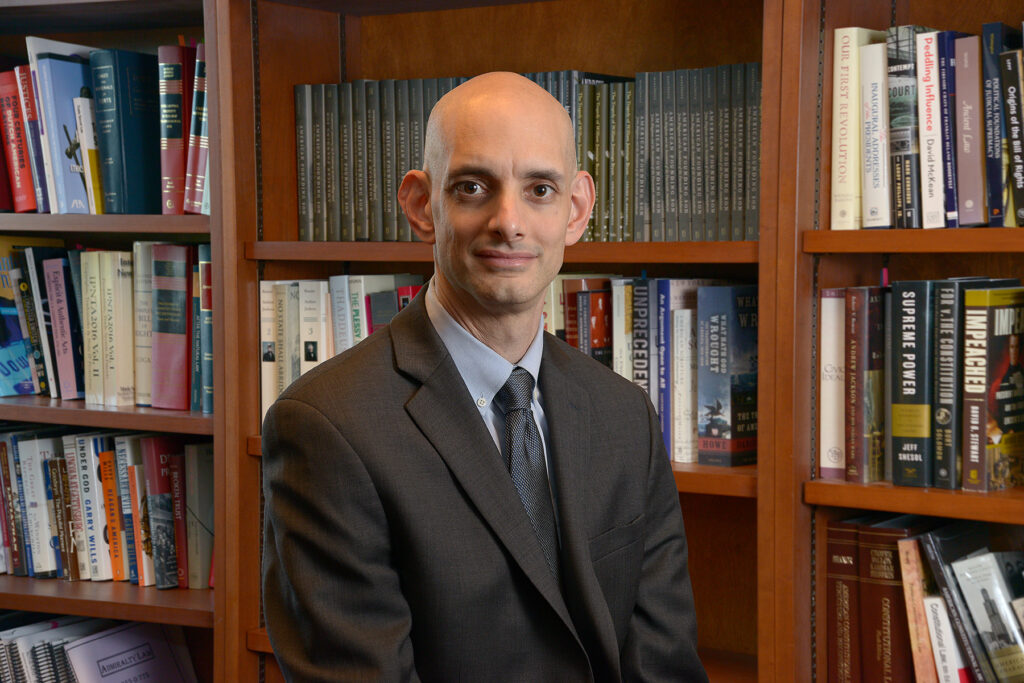Here’s how 2 sentences in the Constitution rose from obscurity to ensnare Donald Trump

A case with the potential to disrupt Donald Trump’s drive to return to the White House is putting the Supreme Court uncomfortably at the center of the 2024 presidential campaign.
DENVER (AP) — In the summer of 2020, Gerard Magliocca, like many during the coronavirus pandemic, found himself stuck inside with time on his hands.
A law professor at Indiana University, Magliocca emailed with another professor, who was writing a book about overlooked parts of the Constitution’s 14th Amendment. He decided he would research the history of two long-neglected sentences in the post-Civil War addition that prohibit those who “engaged in insurrection or rebellion” from holding office.
Magliocca posted a copy of his research — which he believed was the first law journal article ever written about Section 3 of the 14th Amendment — online in mid-December of 2020, then revised and re-posted it on Dec. 29. Eight days later, President Donald Trump’s supporters stormed the U.S. Capitol to prevent the certification of his loss to Joe Biden. Magliocca watched as Republicans such as Sens. Mitch McConnell and Mitt Romney described the attack as an “insurrection.”
Advertisement
That night, Magliocca composed a quick post on a legal blog: “Section Three of the Fourteenth Amendment,” he wrote, “might apply to President Trump.”
The clause’s revival is due to an unlikely combination of Democrats and Republicans, liberals and conservatives, all rediscovering 111 words in the nation’s foundational legal document that have now become a threat to the former president’s attempt to return to office.
THE FIRST TARGETS
Once she had dried her tears after watching rioters storm the Capitol, Norma Anderson sat down with one of the multiple copies of the Constitution she keeps around her house in the Denver suburbs and reread the 14th Amendment.
“I made the connection,” Anderson, now 91, said in an interview.
Advertisement
Anderson is a former Republican leader of Colorado’s General Assembly and state Senate, and eventually would become the lead plaintiff in the case now before the Supreme Court. The evening of Jan. 6, she read the provision that prohibited anyone who swore an oath to “support” the Constitution and later “engaged in insurrection” against it, or provided “aid and comfort” to its enemies, from holding office.

